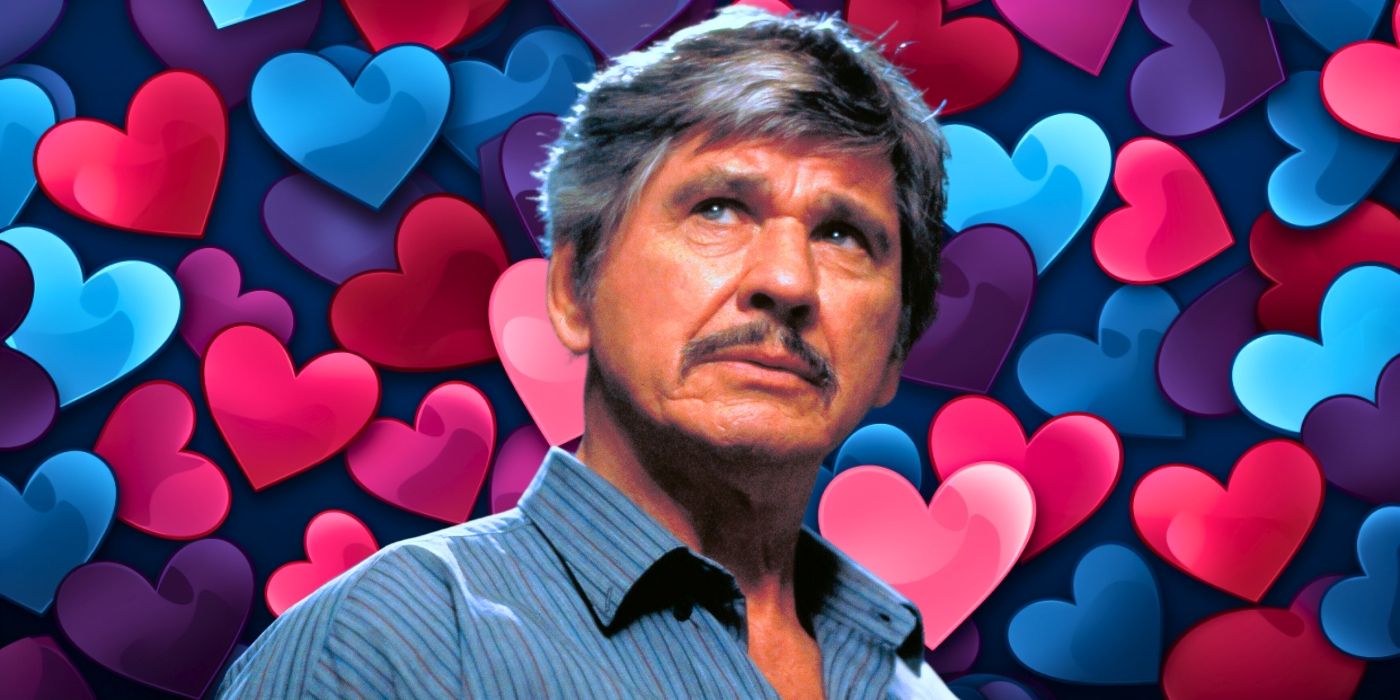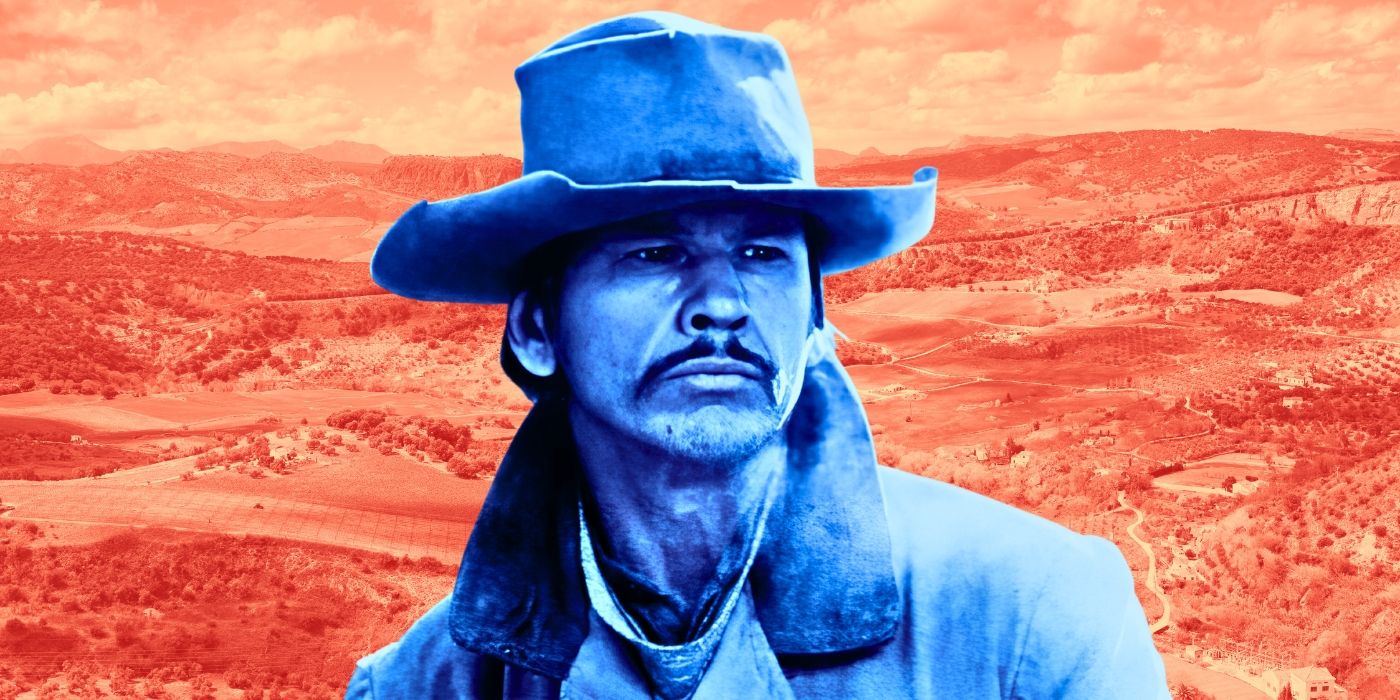The Big Picture
- Charles Bronson overcame a difficult upbringing and led a successful acting career.
- Bronson had a silent, brooding demeanor and tough persona on screen.
- Despite being criticized by some as one-dimensional, Bronson's left behind an impressive Hollywood legacy.
Charles Bronson is one of the most recognizable figures in film, and equally famous is his reputation for not being one of the most pleasant guys to be with. Most of the time, he kept to himself, and even stole the wife of one of his co-stars in The Great Escape. Every single day, Bronson had a chip on his shoulder, and it was due to his rough upbringing. He survived battles in the skies, tunnels underground, and the unforgiving beatings of poverty. He was as resilient as they come though, and instead of succumbing to the bricks that life threw at him, he used his experiences to become the icon that we continue to celebrate today.
Charles Bronson Had a Difficult Upbringing
Before becoming the symbol of silent machismo, Charles Bronson was Charles Dennis Buchinsky, born in 1921 to an extremely impoverished family. He was the 11th of 15 children, raised by Roman Catholic parents Walter Buchinsky and Lipka Tatar in the coal region of Pennsylvania. He grew up in confusion about his feelings for his father, not knowing whether he loved him or hated him. All he could remember were the vivid memories of his siblings hiding underneath their beds whenever their mother announced he was coming home.
When his father died in 1933, he worked in the mines to support his ailing family. They were so poor that he even had to wear his sister's hand-me-downs and they had to shave their heads to avoid lice. For each ton of coal, he earned a measly dollar. Having a lot of siblings to help fend for, the young Charles experienced hardships and dangerous conditions in the mines that shouldn't even be thought of by a child. Their family suffered hunger during the times of the Great Depression, which surely planted the seeds inside the man who vowed to never feel this way again.
The end of the Great Depression crossed paths with the beginning of the world's deadliest conflict, World War II. Bronson was drafted to the United States Army Air Force in 1943, where he displayed tremendous courage and valor. Fighting for his country as a B-29 aerial gunner, Bronson flew 25 missions and received a Purple Heart for his service. As strange as it may sound, serving in the forces must have been a welcome change for Bronson. At least, he had meals on hand, and he achieved glory in his courageous occupation rather than being stuck in mines deep beneath American soil. These events only hardened Bronson, and would soon reverberate into his signature acting style.
Charles Bronson Had an Impressive Acting Career
After the war, Bronson eventually found his way into acting. He was hired to paint scenery for a Philadelphia theater group, which led to him being cast in bit parts. As he began to pile up the roles, the attention paid to his talent also grew. His first big break came in 1960, when he was cast as Bernardo O'Reilly in John Sturges' The Magnificent Seven, a remake of Akira Kurosawa's Seven Samurai. The acclaimed film open doors for him, and eventually landed him in movies such as The Great Escape, The Battle of the Bulge, The Dirty Dozen, and Sergio Leone's Once Upon a Time in the West. His rise to stardom was all due to his innate charisma.

Tough Guy Icon Charles Bronson’s Career Contains a Real-Life Love Story
Even the biggest toughies have the softest hearts.He was silent, brooding, and sometimes just plain terrifying. The great film critic Roger Ebert mentions Bronson had an authenticity to his toughness. Clint Eastwood, Robert Mitchum, and Lee Marvin could play violent characters, but Bronson looked like he had a penchant for rea-life violence. This was partnered with a perpetually exasperated demeanor, rooting from his frustrations of Hollywood taking too long to recognize his talents. The pain that he had endured was bottled up inside him, and he released it through his profession, sometimes even for the worse. James Garner, his co-star in The Great Escape, did not consider Bronson to be a friend because he was abusive on-set. They eventually patched things up, but Garner noted a certain fury inside of Bronson, and claimed that he holds grudges.
Seamlessly, this entire aggravated persona transitioned into the Charles Bronson brand of acting. Objectively speaking, he was no Marlon Brando. In his own words, he was "only a product like a cake of soap, to be sold as well as possible." He just did enough to make the role work, and the success of his career proved that it was more than sufficient. Usually, his aura was that of an embittered man who had gone through years of being mistreated, and transforming into someone with no one left to lose. It was easy for him to play this part, as evidenced by his own history.
Charles Bronson Left Behind a Legacy
While lambasted by snobbish critics as being a mere one-dimensional actor, Charles Bronson's contributions to the world of cinema continue to reverberate. Of all of his works, the Death Wish series perhaps best encapsulates Bronson's style and idiosyncrasies. It's story about an average citizen stalking the streets to gun down punks after his family suffers from a home invasion hits close to his heart. He was, after all, a person who suffered immensely because of his circumstances. His acting career, and his demeanor, was akin to vigilantism to an extent. This was his way to fight the injustices he has gone through from his point of view, and that's what makes him great.
For some, his career may feel antiquated in a world that's becoming saturated with more diverse works. This shouldn't be the case. Bronson's appeal banks on his real life personality. He is the epitome of hard work, perseverance, and the grumpiness that accompanies people as they go through the trials of life. Charles Buchinsky was a misunderstood person who walked through the valley of the shadow of death and came out as Charles Bronson, an icon of American cinema.

